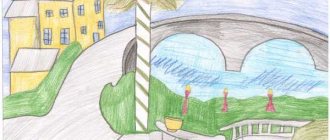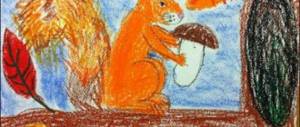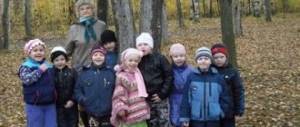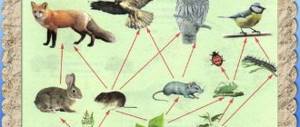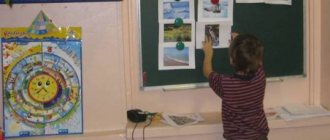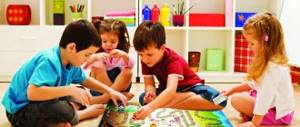Our Motherland – Russia
Sections: Extracurricular activities
Purpose of the lesson
: education of a citizen, a patriot of his homeland
Objectives: to introduce the state symbols of Russia, the basic concepts associated with ideas about the Motherland as a state, to lay the foundations of citizenship, and to cultivate a sense of pride in one’s country.
Basic concepts: state symbols, sovereignty, party, power, constitution.
Introductory conversation.
The great land, the beloved land, where we were born and live, We call our bright homeland, We call our homeland, We call it sweet Russia.
Our Motherland is Russia. We live in this country and are citizens of Russia. Every citizen must love his Motherland, care about its prosperity, know its history, obey laws and fulfill certain duties. Every citizen should know how his country is structured, the state symbols of his country, who runs the country, who lives in the country, and much more about his country
. The more we know about our Motherland, the more we can be useful to it, we can increase its wealth. The future of the country is in our hands.
Today we will look at the pages of the album about our Motherland.
State symbols
What are state symbols? Each state has its own distinctive symbols. This is what people usually remember when they talk or think about this state. The symbol can be a combination of colors on the flag, some image on the coat of arms, the words and melody of the national anthem. State symbols have a special meaning for all citizens of one country. State symbols represent the country abroad: for example, when Russian athletes win, the Russian flag is raised and the Russian anthem is played. The country's embassy abroad is decorated with its flag and coat of arms.
The national flag of the Russian Federation is a rectangular panel of three equal horizontal stripes: the top is white, the middle is blue and the bottom is red. The ratio of the width of the flag to its length is 2:3. The flag is the most famous symbol of the country. The flag is installed on the roof of all administrative buildings - from the Grand Kremlin Palace to the administration building in every village in Russia. The Russian flag has three colors: white, blue and red stripes. Today, the meanings of the three colors of the Russian flag are explained as follows: white represents peace, purity and innocence; blue – faith and constancy; red - strength and blood shed for the Fatherland
The coat of arms of Russia is a double-headed eagle. In the eagle's paws are symbols of power - a scepter and an orb. Three crowns above him (one on each head and one common) symbolize the fact that each part of Russia is independent, but they are united into one state. On the eagle’s chest is the coat of arms of the capital of Russia, Moscow: St. George the Victorious, slaying the serpent with a spear. Crowns in coats of arms do not symbolize monarchy, but sovereignty (independence) and high dignity.
State is a solemn song dedicated to the Motherland. The anthem is performed during important events. It, like the flag and coat of arms, represents the state abroad. The modern anthem of Russia has existed since 2001. Its music was written by composer Alexander Alexandrov, and its lyrics by the famous poet Sergei Mikhalkov.
How the country is structured.
Russia is the biggest country in the world. Its area is 17 million square meters. This represents 1/9 of all the land on earth and 1/8 of the land inhabited by humans.
Russia has the longest state border in the world – it stretches for 62,269 km.
Russia borders on many countries. Officially our country is the Russian Federation. This means that parts are distinguished within it, each of which has its own power. These parts are usually called subjects of the federation. They are united into 7 federal districts, each of which has its own “capital” - the center. These are: 1. Northwestern. 2.Central. 3.South. 4. Privolzhsky. 5. Ural. 6. Siberian. 7. Far Eastern
Who runs the country and how?
The set of the most important laws of the Russian Federation is called the constitution.
The constitution that is currently in force was adopted on December 12, 1993.
The Constitution contains the rights of every person living in the Russian Federation. It begins with the words : “Man, his rights and freedoms are the highest value.”
Every person has the right to personal freedom and freedom of thought, protection from violence and a decent standard of living.
There are 3 branches of government in our country: legislative, executive and judicial.
The legislative branch creates the laws by which we live. In our country, laws are developed by the Federal Assembly, which consists of two chambers: the State Duma and the Federation Council.
The State Duma has 450 deputies who are elected for a term of 5 years. Currently, the Duma consists of deputies elected on December 2, 2007. These are representatives of four parties:
“United Russia” Communist Party Liberal Democratic Party “A Just Russia”
They have different political views, and this helps deputies look at the problem from different angles. Deputies write and pass laws. So they try to fulfill what they promised to voters. A law adopted by the State Duma must be approved by the upper house of parliament - the Federation Council.
What is a party?
Political parties are associations of people who believe in the same ideals and hold the same views.
The judiciary deals with those who do not comply with the laws or do not know how to comply with them. The courts deal with the cases of criminals, and people who have a controversial issue in their lives come to the courts and want to know how to resolve it according to the law.
The executive branch is the people who enforce the laws. In Russia, the supreme body of executive power is the government
.
The government includes the heads of ministries
- the highest governing bodies in various spheres of our life.
For example, there is a Ministry of Health, a Ministry of Culture, a Ministry of Education, etc. The head of all executive power and the head of the country is the president.
President of Russia.
The President of the Russian Federation is the highest executive power in our country. In our country, the president is elected by voting. The last presidential elections were held in March 2008, won by Dmitry Anatolyevich Medvedev.
The President guarantees that the rights and freedoms of every person are respected in our country, he decides what policies the country supports, is the Supreme Commander-in-Chief of the Russian Armed Forces and awards awards to outstanding people on behalf of the state.
Armed forces
Each state has its own army, which ensures the protection of all its citizens and all its territories from external dangers, guarantees its independence and security.
During war, all military personnel take part in hostilities. In peacetime, soldiers maintain order, guard borders, and learn the art of war. A well-trained and armed army is one of the signs of a strong state.
The army has different types and branches of troops. The main division of the army is the ground forces, the navy and the air force.
Who lives in Russia?
Russia is one of the largest countries in the world. In terms of territory, it ranks first in the world, and in terms of population, it ranks eighth, after China, India, the USA, Indonesia, Brazil, Pakistan and Bangladesh.
According to the latest data, 142 million people live in Russia.
The population of Russia is multinational. The main people are Russians (79.8%). The official language is Russian. In addition to Russians, 180 other peoples live on Russian territory.
Moscow is the capital of our Motherland.
This is one of the largest and most beautiful cities in the world.
The year of foundation of Moscow is considered to be 1147. The founding of Moscow is associated with the name of Prince Yuri Dolgoruky. Today his bronze figure adorns Tverskaya Square in the capital. Now the population of Moscow exceeds 10 million people.
The second capital is the city of St. Petersburg. The founding of St. Petersburg is considered to be 1703. Tsar Peter I founded a fortress on a piece of land on the Neva River in order to have access to the sea. The fortress was later called Peter and Paul Fortress. St. Petersburg was the capital of the Russian Empire for more than 200 years. But even having lost this status, it continues to remain the cultural capital of our country. Most of the famous writers, poets, actors, musicians of Russia lived and worked in St. Petersburg. A.S. Pushkin, N.V. Gogol, F.M. Dostoevsky, A.A. Blok, A.A. Akhmatova worked here. Many dedicated their works to their beloved city.
Public holidays
Russian Awards
The state awards particularly distinguished citizens with orders and medals. The order is given to a person personally for his merits, and the medal is awarded to everyone who participated in an important event for history, for example, in the liberation of a city during the war (medal “For the Defense of Leningrad”, “For the Defense of Sevastopol”, “For Military Merit”)
The highest award in Russia is the Order of St. Apostle Andrew the First-Called
. It is awarded to great people who have served to glorify their homeland. They were awarded:
Academician and researcher of Russian literature Dmitry Sergeevich Likhachev,
The great weapons designer Mikhail Timofeevich Kalashnikov,
Writer Alexander Isaevich Solzhenitsyn,
poet Rasul Gamzatovich Gamzatov,
singer Lyudmila Georgievna Zykina.
The most honorable medal in Russia is the Gold Star medal.
which is worn as an insignia by Heroes of the Russian Federation. Among those awarded this title are Minister of Emergency Situations Sergei Shoigu and Olympic champion wrestler Alexander Karelin, skiers and Olympic champions Lyubov Egorova and Larisa Lazutina.
The Order “For Merit to the Fatherland” was established in 1994. Its cavaliers are people who have made a special contribution to the development of Russia.
Russia's highest award for military achievements is the Order of St. George.
In honor of the great commander Marshal Zhukov, the Order of Zhukov was established.
For displays of courage in peacetime - when saving people during a catastrophe, fire or natural disaster - the Order of Courage is awarded.
People who have shown unprecedented courage are awarded the medal “For Courage”.
Let's look into the future.
In 2014, our country will host the XXII Olympic Winter Games in Sochi.
11
. Proverbs about the Motherland
The Russian people have always loved and glorified their country: they composed songs, epics, and poems about it.
Let's make up proverbs about the Motherland from parts:
There is no more beautiful country in the world than our Motherland. For your Motherland, do not spare either your strength or your life. The Motherland is your mother, know how to stand up for her. Where there is courage, there is victory. On someone else's side, I'm happy with my little crow.
Presentation
9.05.2011
xn--i1abbnckbmcl9fb.xn--p1ai
Project in the preparatory group “Russia - My Motherland”
Municipal budgetary preschool educational institution
kindergarten No. 7 of a combined type, Odintsovo municipal district, Moscow region
143070, Russia, Moscow region, Odintsovo district, Kubinka (Kubinka town -8), building No. 17, tel. 8-498-69-5-85-23
Information and creative project on patriotic education of preschool children (preparatory group)
"Russia is my Motherland"
Prepared by: teacher of the first qualification category Gordeeva A.A.
Kubinka (Kubinka town -8) 2020
“Patriotism does not mean only love for one’s homeland. This is much more... This is the consciousness of one’s inalienability from one’s homeland and an integral experience with it of its happy and unhappy days.”
A.N. Tolstoy Description of the material:
This material is intended for preschool children (6-7 years old).
Relevance of the project.
Patriotic education is an urgent problem in educating the younger generation.
A child is not born a patriot, he becomes one. Patriotism is love for one’s family, one’s native land, one’s country, a sense of pride and responsibility for one’s native country, the desire to be part of a great country. Raising patriotism is not a simple and continuous process; much depends on the child’s environment, on what is ingrained in the child’s consciousness from childhood. Not every parent considers it necessary to tell their child about their native country, their ancestors, naively thinking that a small child does not understand anything about this. Therefore, the role of preschool education in instilling patriotism in children is very important, since it is at preschool age that a person’s moral qualities are formed. Project goal:
Education of moral and patriotic qualities of children of senior preschool age, development of interest in the history and culture of Russia
Project objectives:
Consolidate knowledge about the state symbols of the Russian Federation.
Foster a sense of pride in your country. Cultivate an interest in the history of your homeland. Expand the understanding of the national culture of the Russian people, introduce children to Russian folk tales, folk applied arts. Consolidate knowledge about the holidays of Russia, about Russian folk holidays. Expand knowledge about the small homeland. Instill interest in family traditions, respect for elders.. Expand the subject-development environment. Cultivate an interest in reading fiction. Foster an active life position. Expand words knowledge. Project participants:
- children of the preparatory group, - teacher, - parents.
Type of project:
- group, - informational, - long-term.
Implementation period:
- 1 year.
Integration of educational areas:
“Speech development”, “Physical development”, “Artistic and aesthetic development”, “Social and communicative development”, “Cognitive development”.
Expected result
For children: Children feel proud of their country and are interested in the history of their Motherland. They know the traditions of their native people, the symbols of Russia, the history of their small homeland. Children have a deeper knowledge of Russia and the Moscow region. For parents: Parents began to understand the importance of instilling patriotic qualities in preschool age. For teachers: Improving the level of teaching skills.
Forms of work
Working with children • Organized educational activities • Excursions • Quizzes • Holidays • Reading fiction • Conversations • Games (moving, didactic, role-playing) • Artistic creativity • Observation, walks • Multimedia presentations Working with parents • Consultations • Joint work with children •Participation in competitions •Assistance in preparing holidays and entertainment
Stage I of the project (main steps for project implementation)
Setting goals and objectives, project planning, selection of methodological tools.
Stage II of the project (main)
September 1 Block – My city
Conversations: “My city” “Rules of safe behavior on city streets” Looking at photo albums and illustrations: Photo album “Sights of the city of Kubinka” Reading fiction:
Artistic creativity: Drawing “The House I Live In”, collective application “City Streets” Entertainment: Entertainment “Red, Yellow, Green”
Observation: Cars, the street of our city. Work with parents: Consultations: “Child safety on the street” “Does the child know his home address?” November 2 Block Russia - My Motherland
Conversations: “The history of the emergence of Russia” “State symbols of Russia” “Wealth of Russia”
“Day of National Unity” OOD: “Flag of Russia” Review of illustrations and photo albums: Photo album “Russia is my country”, Map of Russia, illustrations “Animals of Russia”, “Russian Air Force”, “Symbols of the Russian Federation”, “Rulers of Russia” . Artistic creativity:
Drawing “Golden Khokhloma” Application “Flag of Russia” Drawing “Kremlin” Drawing based on fairy tales by A.S. Pushkin Reading fiction: Russian folk tales “Little Little One”, “Sister Alyonushka and Brother Ivanushka”. A.S. Pushkin “The Tale of the Fisherman and the Fish”, reading and learning poems about Russia Finger gymnastics: “Hello, my Motherland”, “Building a house” D/games: “What are we doing?”, “Flag of Russia”, “ Choose a sign" Outdoor games: RNI "Burners with a handkerchief" RNI "Grandfather - Horn" Round dance game "Flight of Birds" Work with parents: Consultations: "The role of parents in the education of patriotic feelings of preschoolers" 3 Block My family. Mothers Day.
Conversation: “My family”
Examination of illustrations and photo albums: illustrations “Helpers”, photo exhibition “My Family”.
Artistic creativity: drawing “Portrait of Mom”, making gifts for Mother’s Day “Postcard for Mom”.
Reading fiction: Y. Akim “My Relatives”, V. Dragunsky “My Sister Ksenia”, Z. Alexandrova “Let’s Sit in Silence”, Nenets folk tale “Cuckoo”, “Ayoga”, memorizing poems, proverbs, sayings about family.
Role-playing games “Family”, “Mothers and Daughters”. Finger gymnastics: “Friendly Family”, “Our Apartment”, “Many Mothers in this World” Tabletop theater: “The Wolf and the Seven Little Goats” Descriptive story: “My Mother” January
4 Block Traditions and holidays of our people. Folk art.
Conversations:
“Traditions and holidays of our people” “Folk crafts” “Oral folk art” “Russian nesting doll” “Round dance games in Rus'” Examination of illustrations and photo albums: Illustrations “Folk crafts” (Khokhloma, Gzhel, Dymkovo toy, Gorodets painting), “Russian Matryoshka”, “Russian folk costume”, “Costumes of the peoples of Russia”. Artistic creativity: Drawing “Teapot painted with Gzhel”, “Khokhloma board”, Application “Dymkovo young lady”, OOD: “Let’s decorate a sundress for a matryoshka” Reading fiction: RNS “Sivka Burka”, “Vasilisa the Beautiful”, N. Teleshova “Krupenichka” Excursions : excursion to kindergarten groups, viewing corners of folk and applied arts. Finger gymnastics: “Matryoshka” D/games: “What is what?”, “Find the extra one,” “What kind of curl is this?” Outdoor games: RNI “Burn, Shine Clear” RNI “Golden Gate” RNI “Rucheyok” Work with parents: Consultations: “What Russian folk tales should children read?” February 5 Block Defenders of the Fatherland.
Conversations: “Defender of the Fatherland Day” “Military” “Our Native Army” Examination of illustrations and photo albums: “Military equipment”, “Armed forces of the Russian Federation”, “Russian Air Force”, “Orders and medals of Russia”, OOD: “Travel around Russia” Artistic creativity: Drawing: “Border Guard with a Dog”, “Portrait of the Defender of the Fatherland”.
Application “Postcard for Dad” Reading fiction: Learning poems and songs about the army and the military. Reading chapters from Alekseev’s book “One Hundred Stories about War”, Y. Koval’s story “On the Border”, Y. Dlugolesky “What Soldiers Can Do”. Finger gymnastics: “Stand by”, “Captain” D/games: “Who needs what”, “Name the troops”. S/r games: “Border Guards”, “Tankmen”, “Pilots”, “Military Parade”, “We are Sailors”. Outdoor games: “Who will deliver the report to headquarters faster”, “The most accurate”, “The bravest”, “Scouts” Holidays: “Defender of the Fatherland Day”. Work with parents: Consultations: “The child and his homeland” May
6 Block “Victory Day”
Conversations: “Victory Day”, “Children heroes of the Second World War”
Looking at illustrations and photo albums “Victory Day”, “How we went to the Monument last year”
Excursions: excursion to the Monument to Soldiers Who Fell in the Second World War in Kubinka, laying flowers.
Holiday: “May 9”
Artistic creativity: drawing “Parade of military equipment”, application “St. George’s Ribbon”.
Reading fiction: “Victory will be ours”! Author: S.P. Alekseev, memorizing poems and songs about the Second World War.
Project results:
During the course of the project, the guys became interested in the history of their country and are proud of Russia. We studied the history of our hometown more deeply. The children got acquainted with the history of Russia, the formation of the state, the children’s knowledge about the peoples living on the territory of Russia expanded, and they consolidated knowledge about the symbols of the Russian Federation and its meaning. The children's knowledge about the capital of Russia, cultural monuments expanded, they studied the Kremlin and its towers in more detail - from which they got their name. The children enjoyed studying the map of Russia and looking for different cities. We enjoyed studying Gzhel painting, Khokhloma, Dymkovo painting, expanding our knowledge about the matryoshka doll, and getting acquainted with felting. We continued our acquaintance with oral folk art and Russian folk instruments. Reinforced knowledge about Russian folk holidays and public holidays in Russia. Together with parents, I expanded the subject-development environment. Parents took an active part in the implementation of the project.
Photo exhibition “My Family”
Participation in the drawing competition “Steel Defenders of the Fatherland”
dedicated to the T-60 “Malyutka” tank
Participation in the event “Steel Defenders of the Fatherland”
dedicated to the T-60 “Malyutka” tank, Patriot Park.
Making the Russian flag.
Abstract: Russia is my homeland » ZHARAR © 2019
I was born in the most wonderful country - in Russia . I am a patriot, that's why I love my country. For me, this is the best country, because it is where my parents live, who gave me life, and where I grew up. Russia is a big country with endless possibilities.
I don’t understand those who want to leave here, as if life is much better in other countries. We have the most beautiful nature, with endless fields, fragrant herbs and fragrant flowers. The forests contain great and mighty trees that look simply magical in winter. In general, you can admire and admire the winter forest endlessly. Even visiting tourists appreciate the beauty of Russian nature. We must take care of it and appreciate what we have. There are also a lot of animals in our forests, but our people take nature for granted and do not take care of it at all.
The land in Russia is full of various minerals, so we provide ourselves with many resources. And our resources are supplied to other countries. People are famous for their hospitality and willingness to help others. Our country is the most multinational and now all nations live in peace and friendship. Only we can boast of a variety of traditions and holidays. Our national cuisine is incomparable to any other cuisine in the world.
I'm really proud of my country. Our people cannot be defeated, because we are strong in spirit and never abandon a comrade in trouble. Of course, Russia , like other countries, has its own problems, but all countries have them. Therefore, you should not look for a better life abroad, because it is not for nothing that they say that it is good wherever we are not. There are foreigners who want to live in our country, so we should appreciate what we have. No one has such a beautiful and vast homeland, only the residents of our country. We must take care of Russia and be proud that we were born here.
Materialdyn tolyk nuskasyn sekundan keyin zhuktep alynyz!!!!
www.zharar.com
Essay No. 3 Russia - My Motherland
Every person has his own homeland. My Motherland is Russia, the largest and most beautiful country. Here I was born and grew up, there are many places and people close to me.
Russia is the largest country by territory on the globe. This is a multinational state. The indigenous inhabitants of the country are Russians. They are very friendly, simple-minded and hospitable.
Previously, Russia was called the USSR - the Union of Soviet Socialist Republics. The state consisted of fifteen states, with different nationalities, cultures and identities. Everyone was friendly.
Today the state is called the Russian Federation. Everything, from endless fields and forests to deep rivers, from deep lakes to high mountains, speaks of the greatness of the country. The indescribable beauty of nature extends around its inhabitants.
The capital of my Motherland is Moscow. It is the most populous city in Russia. It has the status of a hero city and its own rich past. All travelers want to admire such historical places as Red Square, the Moscow Kremlin, and the Lenin Mausoleum.
Russia is rich in natural monuments. For example, in Russia there is the deepest lake on the globe, Lake Baikal. This is the largest fresh water reservoir. This lake is located in Siberia. The local flora and fauna are original and diverse. There are animals that live only on Lake Baikal. The underwater world is quite special and rich. The water in the lake is very clean and the air is incredibly fresh. Holidays near Lake Baikal are very popular among tourists. The reason for this is the desire to touch the purity and beauty of our native land.
Russia is rich in famous and talented people. For example, people of science: physicist Mikhail Lomonosov, mathematician Sofya Kovalevskaya. Famous writers: poet Vasily Zhukov, poet and writer Fyodor Dostoevsky. Great artists: Karl Bryullov, Alexey Savrasov. Popular musicians: Vladimir Vysotsky, Muslim Magomaev. All of them made an invaluable contribution to the cultural heritage of our country.
4th grade, 2nd, 3rd grade. 5th grade. Grade 11. 6th grade.
Other works: ← How do I imagine Russia looking at the map ↑ MotherlandFolk crafts →
Essay on the topic Russia is my homeland
Essay Russia is my homeland for 4th grade
Russia is our homeland. There is so much hidden under the word homeland. Our homeland is our home, our street. By homeland, each of us understands everything that is dear to him, what he loves most in the world. Our ancestors lived on this land. They gave us this holy land, which is our home, our wealth.
Every person should love his homeland. After all, our homeland is our native land. This is a land where we can always live in peace. Every child grows up and fulfills his duty to his homeland. We all must defend our native land. After all, our ancestors spent so much effort preserving it and passing it on to us.
Essay No. 2 Russia is my homeland
There are few eternal concepts in the world. The homeland is one of the eternal values of every person. Every baby has parents. Every child has a mother. This is a mandatory condition of nature. Just as any person certainly has a mother and lives in his heart, no matter how old she is, whether she is alive or not, so any person has his own homeland. Russia is my homeland. I love my fatherland.
Our ancestors lived on this land for many centuries. This land is home to every Russian. It may seem to an outsider not quite good and wonderful for living. For an African, our region is too harsh, but for the Russian soul there is no better place on earth than the Russian land. With the birth of a person, love for his native land arises in his soul. No matter how ideal the rest of the world is, one’s home, one’s home street and the edges with its puddles, with all its obvious shortcomings, will always be the best for a person born and raised in this area.
From time immemorial, even primitive tribes waged a fierce struggle for their possessions, for the lands where they were accustomed to live. Over many centuries, our Russian people have had to endure quite a few wars and battles to preserve their native land. The homeland will always be one of the highest values of humanity.
At different times, numerous circumstances arise that force a person to leave his native land. A modern person’s search for a better life, better conditions can force him to leave his native land and go to live in another country. Every person who leaves their homeland lives in eternal longing for it. This fact has been described more than once by both Russian and foreign authors in their works. Many of our writers describe difficult times for our homeland, when every citizen of the country tried with all his might to preserve his home, his land, and protect it from enemies.
4th grade, 2nd, 3rd grade. 5th grade. Grade 11. 6th grade.
Other writings:
Russia is my homeland
Several interesting essays
- Essay What is Honor
Since childhood, we often hear about such a word as “honor”. But, already as adults, many of us still do not understand the true meaning of this word. Why is honor no longer the most important element of life in today's realities? - The image and characteristics of the Devils in Gogol's story The Night Before Christmas essay
One of the characters in Gogol's work The Night Before Christmas is Osip Nikiforovich, a rural clergyman. The author describes the appearance of Osip Nikiforovich as rather unsightly and not particularly outstanding - The image and characterization of Andrei Dubrovsky in the novel Dubrovsky by Pushkin, the essay
Alexander Sergeevich Pushkin in his novel “Dubrovsky” describes a conflict between two families that could have been avoided. Andrei Gavrilovich Dubrovsky was a nobleman, and he had seventy souls under his command. - The image and characteristics of the Lady in the story White Poodle by Kuprin, essay
The Lady is a minor character in the work, representing a rich landowner, the mother of a spoiled and capricious child named Trilly. - Essay on the topic of Laziness
Becoming a star, conquering Everest, swimming across the ocean is a small list of what a person can do. Everyone has dreams and they can all come true. But, unfortunately, there are many obstacles on the path to success.
sochinite.ru
Essay: My Motherland is Russia
I call Russia my homeland because I was born and live here. I love my homeland very much. My relatives, friends and comrades live here, whom I also love. All residents of my homeland understand Russian, so they can communicate without problems. Russia is the largest state in the world. It is washed by two oceans at once. I mean the Pacific and Arctic oceans, and there are even more seas in Russia. Russia on these seas , and it also has huge reserves of natural resources. For example, gas, oil, gold and others. In Siberia and the Russian Far East, large forested areas with wild nature remain. But, despite the enormous resources, most of the Russian population does not live well.
My Motherland is also a republic and a federation. And Moscow is the capital of my country; its population itself is larger than some European countries.
Russia is a multinational country, therefore it is divided into federal republics, autonomous territories and districts. Almost two hundred different peoples, large and small, live in them. These are Russians, Tatars, Bashkirs, Chuvashs, Azerbaijanis, Ukrainians, Jews, Chukchi and many others. They are all called Russians. They should all live together because they have one country. Unfortunately, it often happens differently. But I hope that by the time I grow up, the quarrels between peoples in my country will stop.
Russia , Russia is my great homeland! Those who come to Russia for the first time are amazed by the endless expanses, endlessly stretching fields and forests. And, I must admit, I never cease to be amazed by her beauty. Any time of year is good, but in summer it’s especially magical - there are continuous grass carpets all around, and they are constantly changing: in early spring, the delicate greenery is enlivened by golden-yellow dandelions, then comes the turn of pink and white porridge, cornflowers, daisies, blooming clover, coltsfoot - Can you really list everything that can be found in the meadows?
And the larks are filled with all this beauty. It's nice to walk through a field on a bright sunny day. There is a holiday in my soul, but how could it be otherwise when there is such magic all around. I can't resist making a wreath of wildflowers. A small river, Rekusha, meanders through the meadow; the water flows loudly over the pebbles and runs merrily towards the Volga. In some places there are entire thickets of yellow water lilies, but the hand does not rise to pick them, to destroy this beauty. In water they are uniquely beautiful; you are amazed at the diversity of earthly plants.
Everything in nature is rational and beautiful, you just need to learn to see this beauty, be able to take care of it, preserve it for future generations. Nature is magnificent in itself, and at the same time, how many gifts it brings to people! Communication with nature brings extraordinary spiritual strength. It is no coincidence that holy people went to remote places to communicate only with God and nature. I am proud that I live in Russia, among these forests and fields, I want future generations to receive from us the same beauty of their native nature. To do this, you must endlessly love your land, treat it with care, increasing its wealth.
Every person has a homeland. Our homeland, like our parents, is not chosen; it is given to us at birth and absorbed during childhood. For me, my homeland is, first of all, the place where I was born, these are my parents and relatives. My homeland is the house and yard where I spend my happy childhood, my friends, with whom I play. But a “small” homeland is unthinkable without a “big” homeland—great and vast Russia.
Russia ! This word sounds proud. Every person who has a homeland is happy. I’m happy too, because I was born and live in Russia. This is the homeland of my ancestors. Russia is rich in its nature: forests, rivers, lakes. There are many beautiful villages, towns, cities, both ancient and new, in Russia. But the most important wealth lies in people who are hardworking, hospitable, courageous, heroic, creative and sympathetic.
I love my Motherland very much, I want it to become more and more beautiful and better, so that Russians take care of it, work for the good of the Motherland, for the good of society. I am ___ years old, for now work for me is study, and in the future I will work for my Motherland.
